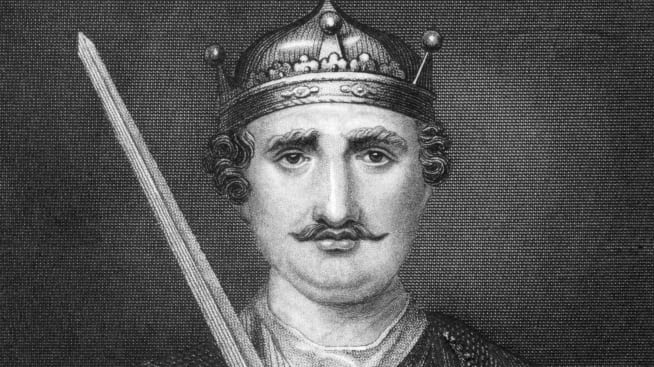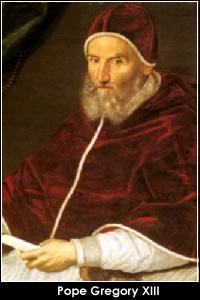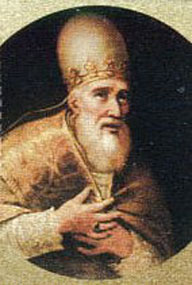
NEW YEARS
A Pagan Celebration of the Past ……The custom of celebrating it, AKITU FESTIVAL, has remained essentially unchanged for 4,000 years! It began in ancient Babylonia in Mesopotamia. It was a pagan custom of ancient sun-worship.
In 46 B.C.E. Roman Emperor Julius Cesar establish January 1 and New Years day. Why that day? Janus was the God of doors and gates. God Janus had two faces; one looking forward and one looking back. Cesar felt that a month named Janus would be the appropriate door for a new year. The first January one celebration was a celebration to the God Janus. Cesar ordered the violent routing of revolutionary Jewish forces in Galilee. Witnesses said the streets literally flowed with blood. Years later Roman pagans celebrated January one by partaking in drunken orgies symbolizing a personal reenactment of the chaotic world before the cosmos was ordered by the Gods. Today the celebrations are pretty much the same. The New York Police Dept was formed in response to these January first celebrations.

As Christianity spread the pagan holidays were incorporated into the Church calendar or were abandoned entirely. Most of Europe during the medieval period regarded Annunciation day, March 25, as the beginning of the new year. Annunciation day is the day the angel Gabriel told Mary that she had been impregnated by God and she was to have God’s son called Jesus. The pagans celebrated January first as the New Year but the Christians were definitely opposed to the pagan start of the year and celebrated Annunciation day and the first day of the year.

When William the Conqueror, AKA William the Bastard, became King of England on December 25, 1066, He decreed that the English would return to the first of the year date established by the pagans. He wanted to assure that the date of Jesus’ birthday would align with his coronation. And the date of the circumcision of Jesus, January first would be the day to start the New Year off. This change was eventually rejected when he died, and all of Christianity abandoned January first as the start of the year and went back to Annunciation day and the first day of the year, March 25.

Then 500 years later, in recent history, in 1582, Ugo Boncompagni, AKA Pope Gregory 13th, abandoned the Julius calendar because the solar year was represented as 365 and 1/4 days which is not correct. It introduced a day every four years to maintain a correspondence with the lunar and solar cycles. The Jewish Talmud knew the correct days in a year 2000 years before. There are 365 days five hours forty-eight minutes and 46 seconds. The Julian calendar would slip behind one day a century. Pope Gregory based his calendar on the date based on the date of the Council of Nicaea (March 21 325 C.E.). This made Pope Gregory’s calendar off by 14 day in his year time period. He based his reform calendar on the vernal equinox, March 11, the date they had 1,357 years earlier. The change in the calendar was made the day after October 4, 1582. The following day was changed and established as October 15, 1582.
The Gregorian calendar (as in Pope Gregory) differs from the Julian calendar in 3 ways.
First no century year is a leap year unless it is exactly divisible by 400.
Second, years divisible by 4,000 are common, not leap years.
Third, starting with Pope Gregory in the year 1582, the New Year would again begin on January first.
In the Roman Catholic Church, January 1 is an Attendance Obligation Holy Day honoring “the Holy Blessed Virgin Mary, Mother of God.”
SAINT SYLVESTER

Today the Israeli government decided it was not right to celebrate a Gregorian New Years. New Year celebrations in Israel are discouraged. Because the whole world is celebrating, instead of New Year parties the people have Sylvester parties. No, it doesn’t have anything to do with Disneyland.
Sylvester was a great Christian theologian, who later the Catholic Church beatified him as a saint, Saint Sylvester. Sylvester was the Pope reigning at the time of the Council of Nicaea. The Year before the Council of Nicaea, Sylvester convinced Constantine to prohibit Jews from living anywhere in the region of Jerusalem. There were many Jews in the area and most refused to leave. It was their homeland. At Sylvester’s urging Constantine went and slaughtered the Jews that refused to leave. At the Council of Nicaea Sylvester arraigned for a large number of decrees that were totally anti-Semitic. All Catholic Saints are given a special day by the Catholic Church in which the saint is to be celebrated. Saint Sylvester’s day is December 31. Hence the celebrations in Israel on the night of December 31st are dedicated to Saint Sylvester’s memory.